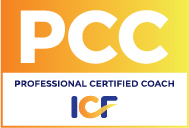It’s an odd situation when someone in your role is looking for ways to help your team do their jobs. Members of the team don’t have the skills, take too long and often deliver low quality products. In turn, you now have the appearance of being inadequate in your role as the team’s leader. Your gut response is to take on the work yourself because you know the level of quality to deliver at, and you meticulously stay on top of team as they compete their work, to ensure success. The downsides to this approach are the burnout you’re experiencing, the lack of trust you have for your team, and the noticeable change in their attitudes and morale. What would your ideal solution be? What needs to change, for that solution to manifest? What changes are you willing to consider and make yourself? These questions are a place to start, and let’s examine some of the deeper elements as to what may be contributing to this dynamic.
They don’t have my experience
You find yourself taking on the tasks your team can’t get done, because you can finish at the quality and in the timeframe needed. How often do you think back on your journey, that got you where you are today? All that knowledge and experience came from somewhere, but where? What were those experiences, and how did you end up tasked with navigating them? I hope you weren’t a victim of the “figure it out on your own because no one showed me” paradigm. There’s nothing wrong with putting in the effort to find answers on your own and exhaust all known resource, using determination to succeed. However, expecting others to learn through that practice is detrimental to them and ultimately yourself. Think about the level of success you had, if that was your experience. How was your confidence affected? What support would have made the experience more valuable? As a leader your role is to grow your team members. So how are you ensuring their growth by making them figure things out on their own? If you didn’t know how to swim, and someone threw you into the deep end of a pool while giving the commands “figure it out”, what’s the predictable outcome? What are some of the thoughts and feelings you might have? Think about the experiences you want people to have, and if “figure it out” is the most effective way to create them.
Experience is about learning what’s needed to be successful and executing on that knowledge. How do you define success for your role? How would you define success for each role on your team? How would each member of the team define success in their roles? In your quest to get projects delivered, your focus on the outcomes is blinding you to the need for control. Ensuring failure doesn’t occur, means you must do everything in your power to prevent it. Plain and simple control. What about the learning though, and how do you factor it into achieving success? Learning is something you can control for yourself and your team. This is your opportunity to lead through growing your team members. How might you approach their learning to execute in their roles better? What skills or knowledge does each of them need to improve on?
As you consider learning as a part of your team’s experience, how does experimentation and innovation factor in? What have you done to encourage experimentation within their roles? There’s opportunity for learning through experimenting. Think about the struggles of solving a challenge, the efforts you put in trying everything under the sun. Doing your best to think outside the box as best you knew how, with the trial and error. Pick a given situation in your past that fits this scenario and think about the lessons which stuck with you as a result. How else might you have learned those same lessons? How long do you think an alternative experience in learning those lessons might have taken? From your own experience you’ve seen the value of experimentation, and lasting lesson that accompany it. What if creating the space for a similar learning opportunity were part of the solution to your troubles? What if you trusted them to use their best judgement? How might you approach creating the environment for your team to have similar experiences? What could it look like? How might they view the opportunity to try it out? What predictable obstacle will you need to navigate to give this a real shot?
The Big Bite
At one time in my career I was working on a team and we hired a new member. They were hired into a junior level role to gain experience, with the idea of eventually working up to a senior level. This individual came in claiming a certain skill set and previous experiences, so we took them face value based on how they could speak about the work. Shortly after they started, a project came up and they were assigned to work on it with me. We split the project up and they were going to do the first half with me doing the second. My half depended on theirs and needed to meet certain specifications for it all to work. I could only do so much work on my part until their part was completed.
Their part of the project took a lot longer than expected even for someone new. They took so much time that the deadline was quickly approaching, and at the milestone check-ins they never disclosed how far behind they were. The result was me stepping in to save the day by doing everything at the last minute. Although I knew how to do the entire project, the purpose in dividing the work was to give them a learning opportunity to integrate themselves into the team and be able to start contributing right away. This ended up being a few long days and nights for me, with little to no sleep to get it all done and was as very frustrating.
After delivering the project, I took time looking back on what went wrong, what could have gone different. I noticed a few areas where I could have done things differently, which may have resulted in a different outcome. The first important question I asked myself was “what happened in that scenario?” What happened was I trusted that they could deliver on what they said they could. I also didn’t check in with them along the way, just but took their word at face value. Not to say I needed to hover over and micromanage them, but rather just check-in on their progress. I knew that they were new to the organization and new to working in the environment, which played a role in their failure. So, I could have taken more ownership of checking in to see how they were doing and to lend support where needed. The approach I took just left them out to hang themselves.
The next question I asked myself was “Why did I do nothing? Why did I sit back and let them fail, while putting the project at risk?” A failure on the project meant all of us failing, not just them and it really came down to trust. I blindly trusted them and took their word at face value, without verifying what their plan was for how they were going to approach the project or how they were thinking about their overall strategy. Knowing the framework of their approach would have made a huge difference to know up front, because we could have been in alignment with how I was thinking about the project. I didn’t include them in brainstorming the overall design, which was my mistake not theirs.
I also asked myself “what would I have done in their situation? How would I have approached it?” Honestly, I can’t blame them for wanting to do a good job, wanting to seem like they knew what they were doing, and not asking too many questions. The key difference being I probably would have asked a lot of questions because I prefer to have all the information available so that I can make informed decisions, or at least know where the ambiguous points and pitfalls are. That would help eliminate surprises and foster my own learning of the organization, to ensure that I had the information available to put my best foot forward and produce a good product for an initial impression. Although I made it through the project and endured the frustrations, it was totally avoidable. It was avoidable because I could have asked more questions up front. I could have set up the structure for us to be more in sync and be available for them when things started to slip.
As you think about my scenario, what’s familiar for you? What stands out for you as a leader, or a member on a team? Where have you encountered a similar experience? What questions did you ask yourself at the beginning, to either preemptively find answers or know what answers to be on the lookout for? How might you have approached my scenario? As you step through all the story of what happened, what would you have done the same? Where might you have done things differently and why? The big lesson for me was to stay in learning mode and not just execute. To stay curious and look out for what I don’t know. Once you know something, you can execute on it. As you’re trying to solve problems there’s so much unknown. But once you do know, you can act and make things happen.
What’s learning got to do with it?
What’s learning got to do with it? Everything! Your lack of trust is directly connected to their learning. When they don’t know something, what are you doing to support them in filling the knowledge gap? What steps are you taking to ensure they have what they need to be successful? Whether you’re the leader of the team, or a member of the team, there’s opportunity for you to lead by supporting the growth of everyone else. What useful knowledge do you have to share, such that others have more success? So that you don’t have to do everything, and more gets done to your quality standards. Thinking about their morale and confidence, how will their learning to improve their performance have an impact? How will your own morale and confidence change? What will you take on in your own learning journey?




